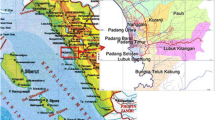Abstract
In the current situation, urbanization is the most desirable way of life, which has led to an increase in urban population, disproportionate expansion of cities, and environmental problems, including increased pollution from transportation, reduced fuel consumption, and consequently reduced emissions are the most serious threats. Sustainable urban development is a common way to cover some of these threats and can improve the economic, social, and environmental conditions of the city. The main aim of the study is to investigate the methods of reducing fuel consumption in the field of transportation. In this regard, various approaches and methods have been proposed by researchers. But with the advent of information and communication technology and intelligent transportation systems, these techniques and approaches have taken a new direction. Today, solutions to reduce fuel consumption using intelligent transportation systems have become one of the most popular fields of science. The aim of this study was to evaluate the dimensions of urban ecology to achieve the quality of a sustainable urban environment and to provide suggestions for reducing the harmful effects on the environment by the transportation system.
Access this chapter
Tax calculation will be finalised at checkout
Purchases are for personal use only
Similar content being viewed by others
References
Inambao, M.S.P.F.: Transportation, pollution and the environment. Transportation, pollution and the environment. Int. J. Appl. Eng. Res. 13(6), 3187–3199 (2018)
Sohail, M.T., et al.: Pakistan management of green transportation and environmental pollution: a nonlinear ARDL analysis, pp. 1–10 (2021)
Mitchell, L.: Ubiquitous Libidinal Infrastructures of Urbanism: The Fringing Benefits of Rhetorics in Architecture. (2013)
Bahadure, S., Kotharkar, R.J.B., Environment: Framework for measuring sustainability of neighbourhoods in Nagpur, India 127, pp. 86–97 (2018)
Nosratabadi, S., et al.: State of the art survey of deep learning and machine learning models for smart cities and urban sustainability. In: International Conference on Global Research and Education. Springer (2019)
Artur, S.M., et al.: Sustainable Solutions for the Global South in a Post-Pandemic World. Institute for Advanced Sustainability Studies (IASS) (2021)
Nosratabadi, S., et al.: Prediction of Food Production Using Machine Learning Algorithms of Multilayer Perceptron and ANFIS 11(5), 408 (2021)
Demirbas, A.: Potential applications of renewable energy sources, biomass combustion problems in boiler power systems and combustion related environmental issues. Prog. Energy Combust. Sci. 31(2), pp. 171–192 (2005)
Dineva, A., et al.: Review of soft computing models in design and control of rotating electrical machines 12(6), 1049 (2019)
Kjell, O.N.E.: Sustainable well-being: a potential synergy between sustainability and well-being research. Rev. General Psychol. 15(3), 255–266 (2011)
Jackson, T.: Prosperity Without Growth: Economics for a Finite Planet. Routledge (2009)
Mohamed, A.A.R.: Further step beyond green-From distractive, to balance, towards restorative built environment. HBRC J. 13(3): p. 321–330 (2017)
Van Kamp, I., et al.: Urban environmental quality and human well-being: towards a conceptual framework and demarcation of concepts; a literature study. Landscape Urban Plann. 65(1–2), 5–18 (2003)
Epstein, G., et al.: Institutional fit and the sustainability of social–ecological systems. Curr. Opinion Environ. Sustain. 14, 34–40 (2015)
Edenhofer, O.: Climate Change 2014: Mitigation of Climate Change, vol. 3. 2015: Cambridge University Press, Cambridge
Boden, T.A., Marland, G., Andres, R.J.: Oak ridge national laboratory, US department of energy, Oak Ridge, Tenn., USA doi, Global, regional, and national fossil-fuel CO2 emissions (2009). 10
Meiabadi, M.S., et al.: Modeling the Producibility of 3D Printing in Polylactic Acid Using Artificial Neural Networks and Fused Filament Fabrication 13(19), 3219 (2021)
Nyhan, M., et al.: Predicting vehicular emissions in high spatial resolution using pervasively measured transportation data and microscopic emissions model. 140, 352–363 (2016)
Kan, Z., et al.: Estimating vehicle fuel consumption and emissions using GPS big data. Int. J. Environ. Res. Public Health. 15(4), 566 (2018)
Gühnemann, A., et al.: Monitoring traffic and emissions by floating car data (2004)
Barker, T., et al.: Technical Summary. In Climate change 2007: Mitigation, in Contribution of Working Group III to the Fourth Assessment Report of the Intergovernmental Panel on Climate Change. Cambridge University Press (2007)
Namdeo, A., et al.: TEMMS: an integrated package for modelling and mapping urban traffic emissions and air quality. Environ. Modell. Softw. 17(2), 177–188 (2002)
Yazdani, M., Mejandeh, E.F., Ardabili, S.F.: Spatial analysis and forecasting of driving accidents at the level of urban road network. Traffic Law Enforcement Res. Stud. 1399(34), 33–70 (2020)
Yazdani, M.H., Firoozi, E., Shakarzadeh-Fard, E.: Evaluating the spatial distribution pattern of city bus stations and measuring its effects on the desirability of public transportation network services. Sci. Quarterly Traff. Manage. Stud. 2019(54), 1–30 (2019)
Seredynski, M., Bouvry, P.: A survey of vehicular-based cooperative traffic information systems. In: 2011 14th International IEEE Conference on Intelligent Transportation Systems (ITSC). IEEE (2011)
Author information
Authors and Affiliations
Editor information
Editors and Affiliations
Rights and permissions
Copyright information
© 2022 The Author(s), under exclusive license to Springer Nature Singapore Pte Ltd.
About this paper
Cite this paper
Abdolalizadeh, L., Koczy, A.R.V. (2022). Investigating Urban Sustainability by Emphasizing on the Approaches for Reducing Fuel Consumption. In: Khakhomov, S., Semchenko, I., Demidenko, O., Kovalenko, D. (eds) Research and Education: Traditions and Innovations. INTER-ACADEMIA 2021. Lecture Notes in Networks and Systems, vol 422. Springer, Singapore. https://doi.org/10.1007/978-981-19-0379-3_1
Download citation
DOI: https://doi.org/10.1007/978-981-19-0379-3_1
Published:
Publisher Name: Springer, Singapore
Print ISBN: 978-981-19-0378-6
Online ISBN: 978-981-19-0379-3
eBook Packages: Intelligent Technologies and RoboticsIntelligent Technologies and Robotics (R0)




